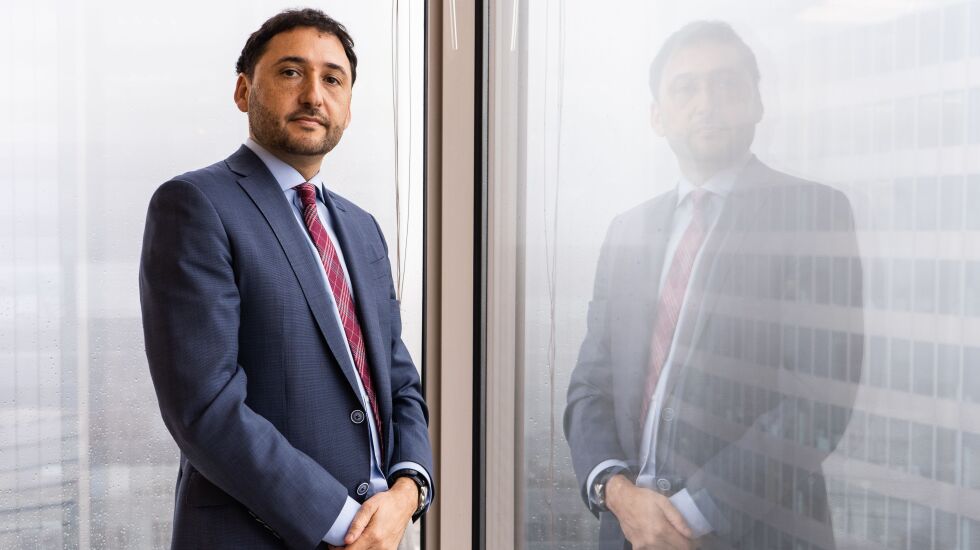
The U.S. Supreme Court heard oral arguments Wednesday in a case that could unlock additional college money for veterans who’ve earned benefits under more than one GI Bill, with Chief Justice John Roberts and others appearing to favor giving long-serving vets the maximum they can get.
The case, Rudisill v. McDonough, concerns military veterans who’ve earned college benefits under both the Montgomery GI Bill, which pays tuition, and the newer, more generous Post-9/11 GI Bill, which pays tuition and fees, plus housing and books. The law allows vets to tap both, up to a maximum of 48 months.
Plaintiff James Rudisill, represented by Chicago attorney Misha Tseytlin of Troutman Pepper, is a long-serving decorated Army veteran who had multiple periods of service before and after the Post-9/11 Bill took effect in 2009. His career, in which he rose to captain, included three tours of duty in Iraq and Afghanistan.
The Virginia resident contends that the “absurd” way the Department of Veterans Affairs oversees benefits shortchanged him out of 12 months of schooling.
He used about 25 months of his Montgomery GI Bill benefits as a young man. Keeping in mind the 48-month maximum, Rudisill was counting on still having almost two years of Post-9/11 benefits left — money that would pay for a degree from Yale University’s divinity school so he could re-enter the Army as a chaplain.
But the VA said if Rudisill wanted to switch over to his more valuable Post-9/11 benefits, he could only get the number of months remaining on his Montgomery plan, converted to Post-9/11 benefits. That would give him only about 10 months of Post-9/11 benefits, not the 22 months he was expecting, which put the Yale program out of reach financially.
In their questions Wednesday, several justices seemed to lean toward Rudisill.
Roberts noted that the government’s math means someone who didn’t serve as long as Rudisill could wind up with more benefits — something the chief justice called “a pretty raw deal.”
Rudisill “served an additional tour of duty after 9/11, in addition to what he had served before 9/11. Now, if you have somebody who just joined up after 9/11, for the same period as the petitioner served, the petitioner is getting less — fewer benefits than the person who only served one tour of duty for the same length,” Roberts said.
Justice Ketanji Brown Jackson also seemed sympathetic to Rudisill’s view that he earned 48 months of college and should get to use all of it.
“I’m not sure it makes sense to say, the government is saying, ‘No, you can only have 36, because you used some of them before,’” Jackson said.
Justice Neil Gorsuch asked why a veteran should be forced into making choices that would harm their ability to get their maximum benefits.
Others, though, weren’t as warm to Rudisill’s argument. Justice Brett Kavanaugh said while the Post-9/11 GI Bill was intended by Congress to be more generous, such benefits are “not infinitely generous.”
Justice Clarence Thomas seemed to say that according to the rules, if a veteran has already started using one benefit, he has picked a path he must stay on, regardless of whether it results in fewer benefits.
The government and Rudisill’s lawyers disagree over how many vets are potentially in such a bind. The VA says it’s about 33,000, but Rudisill’s lawyers say it’s as high as 1.7 million.
The court is expected to decide the case by next summer.
Rudisill’s pro-bono legal team says Congress created the Post-9/11 GI Bill to expand benefits for an all-volunteer military during wartime — not give fewer benefits to long-serving vets.

Justice Elena Kagan gave an example of a hypothetical veteran with both GI bills who had used 35 months of Montgomery benefits. Under the VA’s position, Kagan said, if the vet used a 36th month of Montgomery benefits, he could get a full 12 additional months of Post-9/11 benefits, reaching the 48-month cap. Or he could swap that 36th month of Montgomery benefits for one month of Post-9/11 benefits — but that’s all he’d get.
“Why would that choice be put to the veteran?” Kagan asked.
Justice Sonia Sotomayor added that such a scheme seems “irrational.”
Rudisill has been fighting the case since 2015. He won twice in court but his most recent victory was overturned on appeal.
He is supported by the American Legion, Veterans of Foreign Wars and Iraq and Afghanistan Veterans of America, as well as senators and representatives in Congress including the Republican vice chair of the House Armed Services Committee.
He is also supported by Illinois Attorney General Kwame Raoul and attorneys general from 38 other red and blue states and the District of Columbia.
Mia Garcia-Hills, director of student veteran affairs at University of Illinois Chicago, hopes the court rules for Rudisill. She says for many students, the military is “the only pathway that they could take in order to go to college” and that they should get the maximum entitlement, however it’s figured.
“We have an obligation to do what’s best for the veteran,” Garcia-Hills said. “They’re not asking for something that they didn’t earn. They worked for it.”







